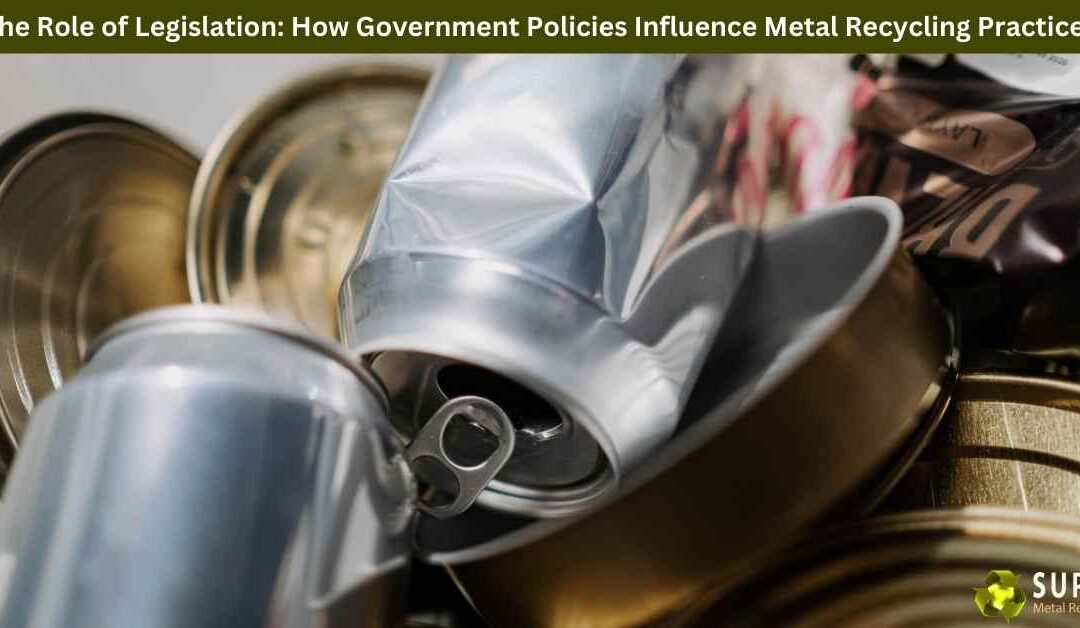Government policies and legislation play a crucial role in shaping metal recycling practices, ensuring sustainable resource management, and reducing environmental harm. By implementing regulations and incentives, governments influence the behavior of industries, recycling facilities, and consumers, fostering a circular economy that minimizes waste and conserves natural resources.
Key Areas of Government Influence
- Setting Recycling Standards
Governments establish rules regarding the collection, sorting, and processing of metals. These standards ensure the quality of recycled materials, making them suitable for industrial use and reducing reliance on raw materials. - Promoting Extended Producer Responsibility (EPR)
EPR policies hold manufacturers accountable for the lifecycle of their products, encouraging them to design for recyclability and manage waste effectively. This approach incentivizes companies to minimize waste and recover valuable metals from end-of-life products. - Creating Recycling Targets
Many countries set ambitious recycling targets for industries and municipalities. These goals drive innovation and investment in recycling technologies while ensuring that a significant percentage of metal waste is recovered and reused. - Restricting Landfill Use
Legislation often includes measures to limit landfill disposal of recyclable materials, encouraging businesses and consumers to divert metal waste to recycling facilities instead. - Providing Financial Incentives
Governments offer subsidies, tax breaks, or grants to recycling companies and industries that adopt sustainable practices. Financial incentives make metal recycling more economically viable and attractive. - Regulating International Trade of Scrap Metals
Policies governing the export and import of scrap metals aim to prevent illegal dumping, ensure ethical sourcing, and maintain a balanced supply chain for domestic industries.
Benefits of Government Policies
- Environmental Protection
Legislation reduces greenhouse gas emissions, energy consumption, and pollution by encouraging efficient recycling practices. - Resource Conservation
By supporting metal recycling, governments help conserve finite natural resources and reduce the need for destructive mining activities. - Economic Growth
Policies that encourage recycling boost the recycling industry, creating jobs and fostering technological advancements. - Public Awareness
Mandates for educational campaigns and recycling programs increase public participation in metal recycling efforts.
Challenges in Policy Implementation
- Compliance and Enforcement
Ensuring compliance with recycling laws requires robust monitoring systems and resources, which can be challenging for some governments. - Global Coordination
With metals traded internationally, inconsistent policies across borders can hinder recycling efforts and lead to inefficiencies. - Economic Disparities
Developing nations may struggle to implement and enforce recycling policies due to limited resources and infrastructure. - Evolving Technologies
Rapid advancements in materials and recycling technologies require regular updates to legislation, which can be slow to adapt.
The Future of Metal Recycling Legislation
To improve global metal recycling practices, governments must collaborate on standardized regulations and promote cross-border initiatives. Investments in advanced recycling technologies and infrastructure will further support policy goals, ensuring that metal recycling becomes more efficient and accessible.
Conclusion
Government policies are pivotal in advancing metal recycling practices, addressing environmental challenges, and ensuring resource sustainability. By fostering innovation, encouraging responsible behavior, and promoting public awareness, legislation creates a framework for a greener future. Through effective policies, governments can ensure that metal recycling not only thrives but also becomes a cornerstone of sustainable development worldwide.
If you are in Upwey, Victoria 3158, and looking for a metal recycling service, this is the best way to visit us.
Super Metal Recycling
345 Frankston – Dandenong Road, Dandenong South VIC 3175
(03) 9706 4909


Recent Comments